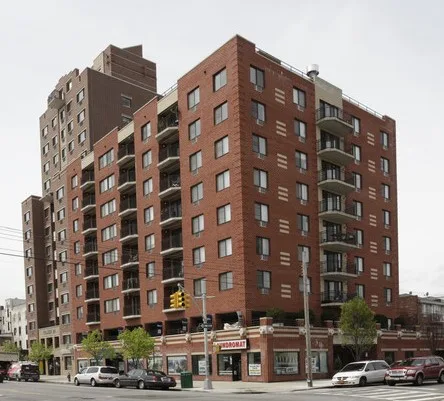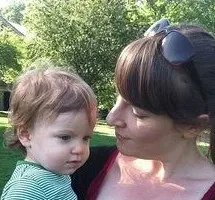Think it’s hard for expats adjusting to Ecuador? Here’s what it’s like for a foreigner in the U.S.
By Ruth Margolis
When you move abroad, you expect some bureaucratic befuddlement. You’re setting up from scratch in a country whose systems and procedures you don’t know.

Want to rent an apartment in New York City? What’s your credit score?
But for Brits, U.S. red tape should be simple to scoot around and under. Right? We very nearly speak the same language, and Americans seem like such a breezy, friendly bunch.
So, when my fiancé and I moved from London to New York because he’d got a job there, we weren’t expecting our lives to be overtaken by killer paperwork. The complete absence of humor or flexibility exhibited by anyone behind a desk or at the end of a “help” line only made the form filling and hoop jumping worse. It was like trying to settle in Stalinist Russia. Multiple times in those first few weeks we’d look at each other, then at the growing pile of semi-literate documents on our friends’ spare bedroom floor and feel ready to give up.
Signing up for the internet, dealing with the U.S. health care system – even renting a flat – were all soul-crushing experiences.
“Hello. I’d like an apartment to live in please,” I said to the first estate agent – or realtor – starting what would become a tear-jerking two-month hunt for a rented accommodation. My request was met with a few too many seconds’ silence from the other side of the faux mahogany desk.
“OK. Can I first just get your credit score?”
“Eh, no. The thing is, I just moved here, so I probably don’t have one.”
“Well, you need one.”
“Oh.”

Ruth Margolis and her daughter.
He was right. It turns there’s no way to rent an apartment in much of the U.S., at least through official channels, if you don’t have a glowing credit score. Have none at all (your British credit history is, incidentally, irrelevant) and you might as well write, “keeps bedbugs as pets” on your application.
I checked and they don’t sell off-the-peg credit scores at Target, and no amount of begging while waving copies of healthy bank statements made a difference. Desperate and getting nowhere, we tried to produce a guarantor. But no one met the rigid criteria: a U.S. citizen with a yearly salary of 80 times our proposed monthly rent. Our few American friends were not that wealthy.
In the end, we were lucky enough to find a flexible landlord and a small flat we’ve never left for fear of how we’d manage to secure a replacement.
Long after Apartment Gate was put to bed, I discovered I was pregnant. The predictable elation and anxiety followed, plus one exclusively American fear: how would we navigate the horribly officious health care system?
We panicked endlessly about what, exactly, our insurance would cover, and how much we’d need to fork out. The amount, it emerged, would be capped thanks to something called a “deductible”. Oh, but only if every “provider” seen by me or the baby took our insurance. Doctors in the U.S. are not obliged to accept specific insurance plans, and some won’t take any at all.
It turned out the hospital’s anesthetists and pediatricians – who would, respectively, pump my spine full of a delightful numbing agent and check up on our newborn – wouldn’t necessarily take our insurance. When we asked about this weeks in advance, we were offered the option to pick an anesthetist and a pediatrician who were covered by our plan. But this was impossible to organize. You just got who you got on the day, and then later a demand for payment. We spent several stressful postpartum weeks and many frustrating phone calls trying to resolve this lunacy.
Luckily, I had a straightforward delivery. Yet, part way through it, a charcoal-suited woman from the hospital’s administrative bowels showed up with a stack of forms wanting signatures. Mine, specifically. Dazed and unable to muster a “sod off”, I obligingly scribbled on everything they put in front of me.
Compared to the stress of trying to understand then reduce our hospital spend, dealing with a new baby was easy. She didn’t send us cryptic invoices and her hourly wails were infinitely less tricky to decipher than her mother country’s opaque officialdom.
Skip forward a couple of months to the time we decided to apply for our daughter’s U.S. passport. Having got ourselves to the correct office on time, we began working through the predictably incomprehensible forms. Soon, we got to the line that asked for our infant’s “occupation”.
“Um, what do I put here?” my husband asked the desk clerk, thinking perhaps we’d missed the memo explaining that kids raised in America need to get a job before cutting their first tooth. Without looking up from her National Enquirer, the official behind the counter gave us our answer: “Just put ‘baby’.”
Slowly, we digested her suggestion.
“But that’s not really an occupation,” he appealed. “I mean, she doesn’t get paid for it.” Cue silence and a contemptuous stare. At last, realizing it was futile to protest, he picked up his biro and wrote “baby”.
_______________
Ruth Margolis is a freelance journalist, originally from London, now living, working and bringing up babies in Brooklyn, NY.




















